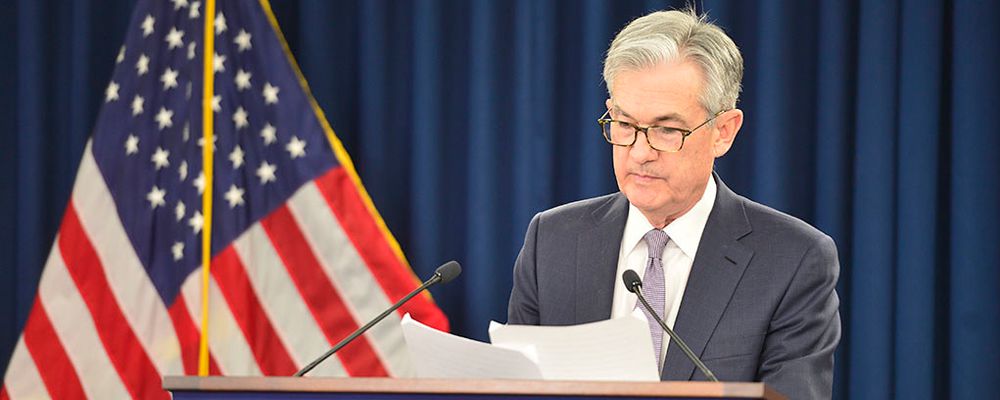The earliest date for a Fed rate cut is May and will prompt a change in asset returns.
- Thursday, November 23, 2023
 GDP growth in the US continued to surprise on the upside while inflation maintained its steady decline. The resilience of consumers in both the US and UK has meant that the ECB, Fed, and BoE have been cautious about their rate outlook and reinforced the stance of ‘higher for longer.’ This outlook supressed markets in September and October but the holding of rates in early November has prompted a feeling we may have hit peak rates.
GDP growth in the US continued to surprise on the upside while inflation maintained its steady decline. The resilience of consumers in both the US and UK has meant that the ECB, Fed, and BoE have been cautious about their rate outlook and reinforced the stance of ‘higher for longer.’ This outlook supressed markets in September and October but the holding of rates in early November has prompted a feeling we may have hit peak rates.
The pausing of interest rate rises by these three main central banks in the same week was a great boost to economic optimism, that rates are now at their likely highest level. Stock markets took comfort from this and have rallied through most of November. Despite the optimism from stock markets, the real economy is not likely to start a recovery phase for another 12 months.
The global economy is decelerating and for this reason within the next six months the major central banks are expected to start cutting interest rates. The most influential forecast is that the Federal Reserve policy rates will be lower within the next 12 months. This is the same outlook for interest rates in Europe and the UK. Yield curves will steepen as short-term rates start to fall.
With this outlook it is right to maintain and even overweight the bond allocations in our portfolios. We have therefore focused upon UK and US government bonds and investment grade credit. In any rate cutting environment as bond yields fall prices will rise.
All our portfolios have been holding a significant allocation to cash as this has been the most reliable diversifier in 2023. We have however removed our exposure to natural resources as the global demand slows and to property due to high interest rates. We will review these holding in the future.
We expect to maintain our overweight in the US and to international markets and increased further our exposure to emerging markets and Japan but eased down our holdings in Europe, UK, and Asia.
The conflicts in Ukraine and Gaza are both near to major large energy exporting regions and the price of oil and gas could have been affected. Fortunately, the conflict in Israel looks to be contained to the Gaza area and oil prices have fallen over the period of the conflict. Brent oil now stands at US$79pb down from US$88pb on 7th October, the day Hamas initially attacked Israel. The revenues from the energy sector this year have been strong and despite a fall in oil prices due to reduced demand we are still happy to hold the Guiness Global Energy Fund in the portfolios.
The next year will see slowing economic growth but also the start of a recovery. This journey is not likely to be smooth as geopolitical events have proved. Markets are still sensitive and over react to events and comments.
The monetary tightening cycle is now expected to come to an end in both the US and Europe but high interest rates are expected to prevail for up to six months and in that period the economy will slow. High interest rates will stall the economy but falling job numbers and prices will prompt a welcome start to interest rate cuts in 2024.
The earliest date for the Fed to start cutting interest rates will be May 2024. That will prompt a change in asset returns. Past experiences of asset return around the first rate cut from the Fed is that equities, government bonds and investment grade bonds will do well and outperform other asset classes. Generally, it is government bonds that produce the best returns within twelve months of a rate cut.
One issue that may determine the level of return to be expected after a first Fed rate cut will be the speed and depth of any rate cut. This will be determined by the economic environment at the time. If inflation is sticky and economic growth strong, we can expect smaller cuts. However, if inflation falls from 3.2% to close to the Feds 2% target, we could expect a significant reduction especially if the jobs market has declined and economy weaker.
We are expecting the economic pressure on markets to ease as inflation and wage growth fall. While consumer spending is a concern, analysts expect that the bad news is already in the price and that falling inflation and falling interest rates will start a recovery in 2024.

Chris Davies
Chartered Financial AdviserChris is a Chartered Independent Financial Adviser and leads the investment team.
About Estate Capital
Financial Services
Our Contacts
7 Uplands Crescent,
Swansea, South Wales,
SA2 0PA.
Tel: 01792 477763
